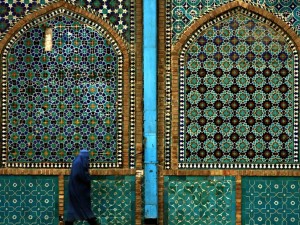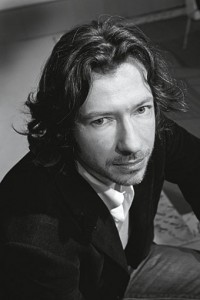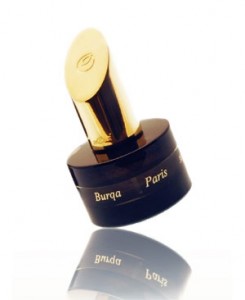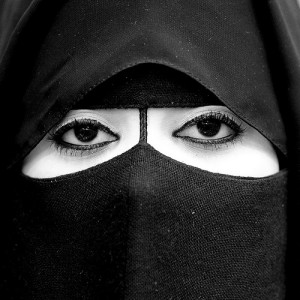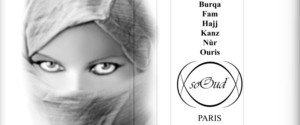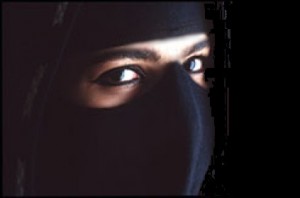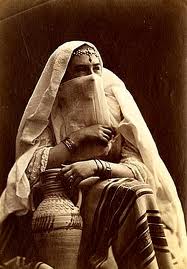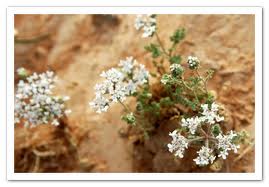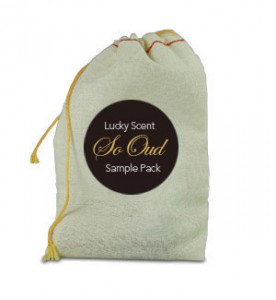Hazrat Ali Mosque from photography.nationalgeographic.com
Earlier this year in NYC at Elements, I barely had the opportunity to thoroughly examine the soOud collection…
I was captivated by Stéphane Humbert- Lucas– that too-handsome rascal nose for both Nez à Nez and soOud.
We found ourselves nose-deep in tête-à-tête, discussing all things sensorial and sensual, with a fair degree of intensity.
Stephane Humbert-Lucas from marieclaire.it
At Henri Bendel’s last weekend – during Sniffapalooza’s Spring Fling– [where he is now ensconced with all his new beauties assembled] –
I was able to devote more time to the lot…and I did.
Several fragrances caught my nose- but only one did I purchase and carry home as scented bounty
And that one was Burqa.
Let’s examine this name more closely.
On the oh-so-elegant white-and-gold outer container/ box, it states very quietly, in tiny gold font, on the very bottom of the side of the package:
“Burqa, le parfum ne supporte plus l’interdit.”
Which is rather quizzically translated on the opposite side of the box to read:
“Burqa, the perfume likes difference
Oh dear.
NOW I’m done for .
Burqa.
Burqa burqa burqa.
It’s hypnotizing to repeat as a mantra, as if in an indolent narcotized trance state, isn’t it?
But unfortunately, it is a word fraught with meaning and iconic of women’s struggles- according to most Western perceptions.
Ought it to be???
Indulge me, my friends, and let me tell you a story, if I may.
[As if you could stop me ;-)]
It might help to illuminate the well-intentioned Babelfishing above
A very dear friend of mine, a gorgeous specimen of the Hibernian Academic-
Fell madly in love with a Shiite Saudi professor.
They married in haste and repented in leisure; but that is immaterial to the gist of my tale.
Two beautiful children were the result of their union- Amir and Yasmin.
And the plot thickens…
Yasmin was raised, for the lion’s share of her young life–
In Saudi Arabia, and other adjoining countries where women are veiled.
She came to the U.S. later on, to attend Princeton, and majored in Women’s Studies….
Yasmin’s perspective on life among Arabic women certainly challenged any presuppositions I’d entertained.
According to Yasmin’s experiences and travels– even among Bedouin women-
The women she lived with felt morally superior to their men [although they might not verbalize this except amongst themselves].
They were veiled and covered in public; each felt that she was beautiful, without exception –
Irrespective of age, weight, financial status, education, or social standing in the community.
Women’s life among women was joyful and at times tempestuous-
As all family life can be… and is.
The dancing, singing, the sisterly camaraderie and intimacy was a gift that Yasmin felt sadly lacking upon return to her mother’s rural native Massachusetts.
Even in Harvard Square and other urban areas where intellectual young folk congregate…
Nowhere could Yasmin experience the warmth and comfort of belonging that she had grown up with, and taken for granted.
And the veiling? The burqa?
Modesty is nothing new; Jews, Muslims, Catholics, Protestants, Evangelical Christians, Mennonites, Amish, Quakers, Buddhists, Hindus- All believe in behaving and clothing themselves modestly.
We are all fully aware that anything can be abused, used to torment and entrap. Classical music can be used for torture [witness Clockwork Orange’s bold use of Beethoven’s Fifth! ]. Sustenance and the lack of it- can be an affront or a blessing, given and withheld. Rules and tenets can be twisted to include and exclude, as one desires.
Burqa Eau Fine Notes: Jasmine, rose, black violet, cardamom, sage, leather, benzoin, myrrh, black ink, rubber sap, black amber, teak, patchouli drops, gaiac. Notes are a fundamentally curious thing, aren’t they? They can be so deceptive. What really matters is skin, and how it all plays out on the fleshly canvas.
The beauty of the suggested, the intimated, of pleasures to come- is its lure.
spiritofmaat.com
Yes, there are florals- deep, dark ones which inhabit the landscape of. Homer’s wine-dark sea. It feels that way to me
flickr.com
In the exotically woody, salty, diaphanous darkness there are olives, aged and briny. There exist tendrils of smoke, lightly scorched earth from an extinguished bonfire, and the suggestion of well-worn saddles. Cardamom and sage are strange bedfellows, but they create an enigmatic atmosphere, summoning the souk and the caravan. We speak of the ghostly dry loveliness of the desert, you and I. It is peaceful, but the erotic tension is a subtext which will manifest later, when we have cooled our heels and wet our parched lips.
redvisitor.com
Burqa is an oddly comely fragrance; it seeks only to please itself. And perhaps you, as well. There are other fragrances in the soOud collection which are much, much easier to wear, and probably, to love- But Burqa has my heart. My deeply secretive, alluring heart, waiting to unfurl like a shrouded desert bloom.
splendidarabia.com
–Ida Meister, Senior Editor We have a draw courtesy of Luckyscent of samples of all eight of the soOud eau fine collection. Al Jana Eau Fine,Asmar Eau Fine,Burqa Eau Fine,Fam Eau Fine,Hajj Eau Fine,Kanz Eau Fine,Nur Eau Fine,Ouris Eau Fine To be eligible just leave a comment naming your favorite soOud or the one you most look forward to trying. Draw closes on May 12, 2011.

